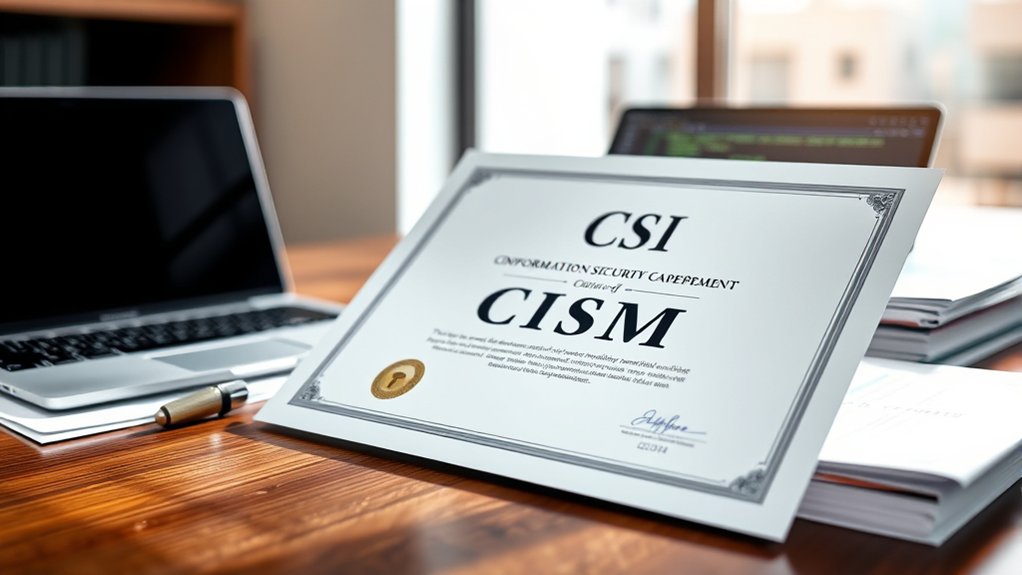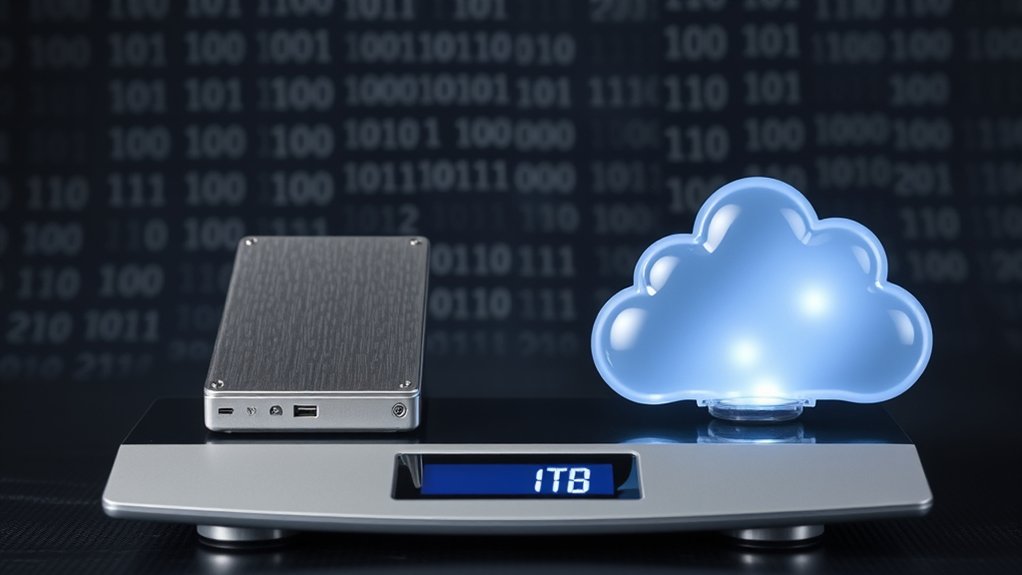The CISM certification, developed by ISACA, focuses on information security management and highlights risk management and compliance. With over 48,000 global holders, it holds significant value in industries with strict security requirements, such as technology and healthcare. The certification bolsters career prospects, preparing individuals for leadership roles and validating expertise in managing cybersecurity challenges. Furthermore, CISM promotes ongoing professional development, ensuring practitioners maintain knowledge of evolving threats. Further insights reveal its broader implications for organizational security frameworks.

In an era where information security is paramount, the Certified Information Security Manager (CISM) certification plays a crucial role in the professional development of individuals in the IT sector. Offered by ISACA, the CISM certification improves an individual’s professional stature by focusing on fundamental aspects of managing and governing information security. This credential highlights risk management and compliance, ensuring that professionals are well-equipped to address the increasing complexities of cybersecurity.
With over 48,000 holders worldwide, CISM is recognized globally across various industries for its managerial focus in IT. The certification serves as a key credential for individuals seeking to advance in cybersecurity roles, particularly in leadership positions. Its validation of expertise in information security governance and risk management boosts candidates’ reputations as skilled managers, thereby increasing their employability in top managerial roles.
CISM enhances employability by validating expertise in information security governance, crucial for advancing in cybersecurity leadership roles.
In terms of career advancement, CISM holders can pursue several roles, including Information Security Manager or Security Governance Specialist, thereby validating their advanced knowledge and skills in security management and risk analysis. The certification is especially advantageous in high-demand regions, such as Washington D.C. and the East Coast, as it facilitates shifts into leadership roles with heightened credibility. Moreover, the demand for CISM professionals is a driving factor for those looking to secure lucrative salary packages in their respective fields. Additionally, CISM encourages continuous learning which ensures that professionals remain well-informed about evolving security measures and threats.
Moreover, CISM’s industry recognition is significant; employers value this certification for demonstrating a commitment to best practices and professional ethics in information security. It is vital in industries requiring stringent security measures, such as technology and healthcare, aligning security strategy with overall business objectives.
The CISM certification is supported by extensive educational resources, including an online review course and group training options. To maintain their certification, CISM holders must adhere to the Continuing Professional Education (CPE) policy, ensuring they remain updated on the latest security practices and industry changes. This assurance of compliance with regulatory requirements improves the overall security environment.
Frequently Asked Questions
What Are the Prerequisites for Obtaining the CISM Certification?
To obtain the CISM certification, candidates must meet specific prerequisites set by ISACA.
They are required to pass the exam, scoring at least 450. In addition, a minimum of five years of extensive professional experience in information security management is crucial, with at least three years covering CISM domains.
Application submission must occur within five years post-exam. Candidates must adhere to the ISACA Code of Professional Ethics and accumulate 120 Continuing Professional Education hours every three years.
How Much Does the CISM Certification Exam Cost?
The cost of the CISM certification exam is contingent upon membership status.
ISACA members incur a registration fee of $575, whereas non-members face a fee of $760. This discrepancy signifies a $185 benefit for members.
Supplementary costs include a one-time application fee of $50 and potential training expenses ranging from $1,600 to $2,200.
Retaking the exam likewise requires the same fee as the initial registration, making financial planning crucial for candidates.
How Often Do I Need to Renew My CISM Certification?
The CISM certification requires renewal every three years.
To maintain this credential, individuals must earn 20 Continuing Professional Education (CPE) hours annually, ensuring ongoing professional development.
Moreover, certified professionals are required to pay annual maintenance fees of $45 for ISACA members and $85 for non-members.
This structured renewal process underscores the importance of adapting to evolving information security challenges, thereby enhancing one’s expertise and marketability in the cybersecurity field, as indicated by industry standards.
What Study Materials Are Recommended for the CISM Exam?
For CISM exam preparation, various recommended study materials improve candidates’ readiness.
Primary resources include the CISM Review Manual, which outlines essential responsibilities in information security management. Moreover, practice question guides provide valuable insights through detailed explanations.
Extensive online courses, such as those from reputable providers like Simplilearn and Kaplan, likewise offer structured learning environments.
In addition, engaging in CISM review webinars and utilizing flashcards can considerably reinforce understanding of the exam’s core concepts.
Can I Take the CISM Exam Online?
The CISM exam can certainly be taken online, providing flexibility for candidates. This option allows individuals to use remote proctoring services, accommodating various schedules and locations.
According to ISACA, the exam is structured with 150 multiple-choice questions and requires a passing score of 450 out of 800. Candidates must register online and meet identification requirements to guarantee examination integrity, reflecting strict adherence to industry standards in information security management.









